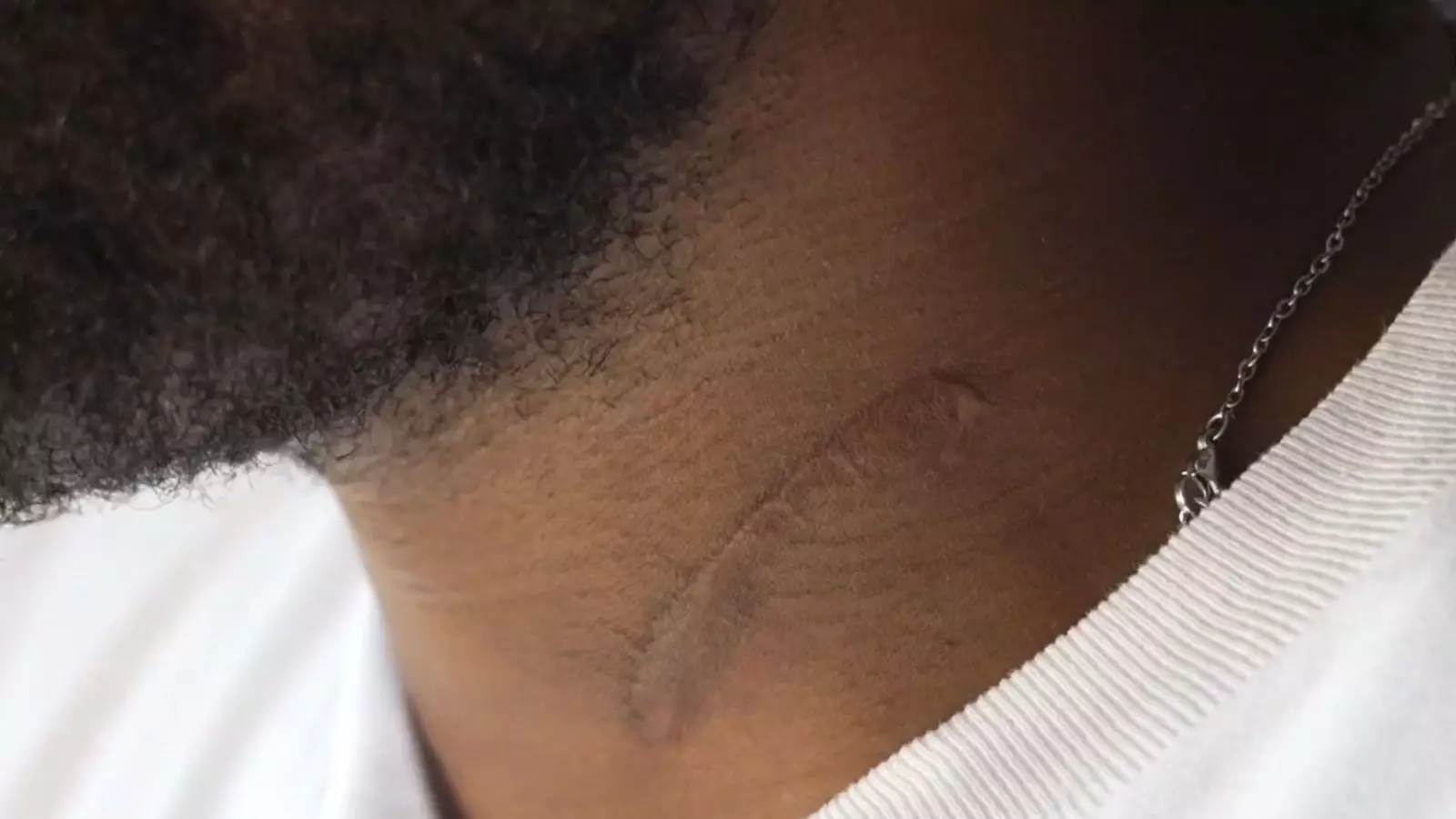In a shocking revelation that will haunt many, survivor Donato Iwule recounted his harrowing encounter with Marcus Arduini Monzo, the attacker behind the infamous Hainault samurai sword rampage. Set against the backdrop of modern London, a place often seen as a safe haven, this incident shatters the illusion of security many residents take for granted. On that fateful day, Iwule went from being a mere commuter to a target, left to contend with the terrifying gaze of a man driven by a psychotic fury. Monzo’s chilling words, “I’m going to kill you,” are not just a statement of intent; they encapsulate a moment of pure horror that should never befall anyone.
A Glimpse into Chaos
Describing the attack as akin to a “horror movie,” Iwule’s recollection is a profound exploration of human vulnerability in the face of unprovoked aggression. The act commenced with Monzo’s deliberate choice to use his vehicle as a weapon, a grotesque demonstration of how quickly norms can dissolve into chaos. The violence escalated when Monzo leaped from his van, brandishing a samurai sword—a tool historically associated with nobility and honor, yet in this instance twisted into an instrument of terror.
This juxtaposition creates a profound sense of dissonance. How can such a majestic symbolic object be transformed into a harbinger of death? In a matter of moments, Iwule transitioned from an ordinary person to a victim fighting not just for his life, but also for his sanity. His instinct to respond to Monzo with concern—”Are you okay?”—is a heartbreaking illustration of humanity clashing with malevolence.
The Fight for Survival
Iwule’s survival is not only a testament to his fortitude but also a powerful reflection of the human spirit in moments of unimaginable crisis. After being slashed, Iwule’s immediate reaction was panic, a natural response to such physical trauma. However, what stands out is his resilience. Relying on memories of medical advice from his cousin, he applied pressure to his wound—an act that not only embodies survival instinct but also highlights a rare ability to maintain clarity amid confusion.
It’s easy to reduce stories of violence to mere statistics—one man attacked, another man convicted. Yet, Iwule’s experience underscores the reality that behind every headline is a story of emotional and psychological aftermath. Despite surviving the physical ordeal, he faced months of trauma. The haunting memories that forced him to seek refuge with his mother remind us that physical wounds can heal, but the psychological scars may linger indefinitely.
Justice and Its Limitations
On the horizon is the impending sentencing of Monzo, whose actions have irrevocably altered the lives of many. While Iwule expressed relief at the conviction, the legal system, while necessary, often fails to bring about true justice for victims. Sentencing may serve as a form of closure; however, the emotional and psychological fallout endured by survivors often remains unaddressed.
The society we live in must grapple with the implications of such attacks, each incident is yet another reminder of the persistent threat of violence that lurks beneath the surface of our daily routines. How many more individuals must endure the trauma of terror before we recognize the urgent need for systemic changes? While Monzo’s conviction may signify accountability, we cannot ignore the broader conversation about the environment that fosters such malevolence.
A Call for Transformation
It is time for society to take a hard look at the values we uphold, the narratives we propagate, and the systems in place that maintain safety—or lack thereof. Beyond the legal consequences faced by individuals like Monzo, we must address the roots of violence and fear through community engagement, mental health resources, and preventive measures. Iwule’s story serves as not only a personal narrative of survival but also as a powerful call to action. The urgency for transformation in how we perceive safety, the importance of mental health, and the need for community support is now more pressing than ever.
As we reflect on such incidents, we must strive for a society where encounters of violence become relics of the past, rather than harsh realities of the present. In doing so, we honor the profound resilience of individuals like Iwule, who teach us that even in darkness, hope and humanity can prevail if we choose to stand together.



Leave a Reply